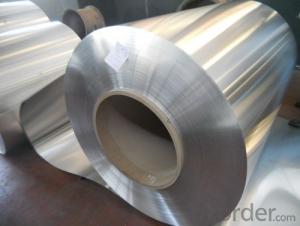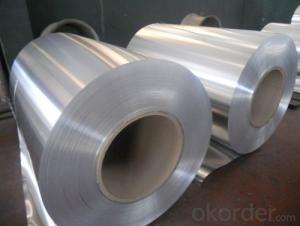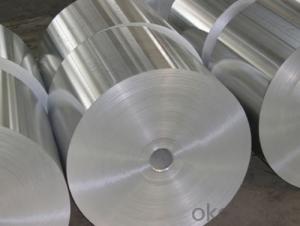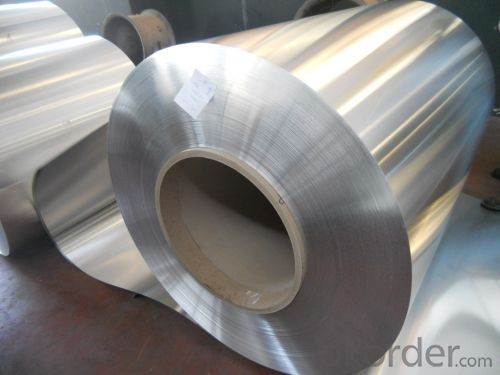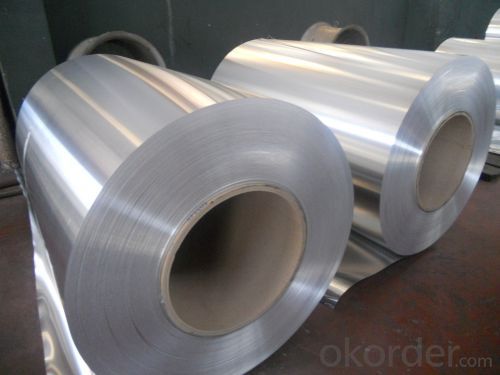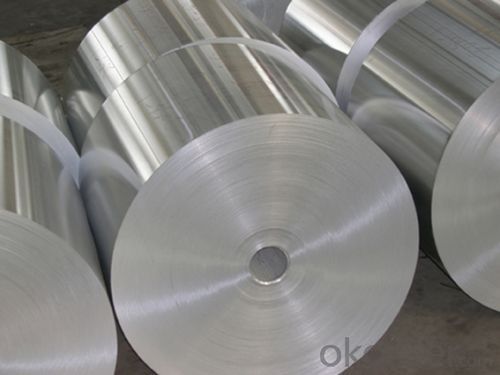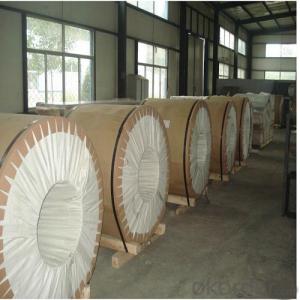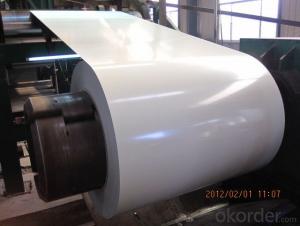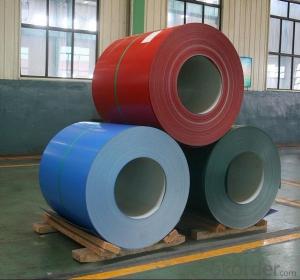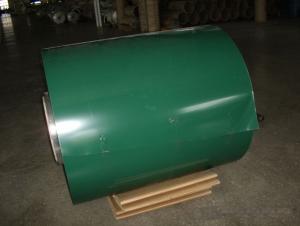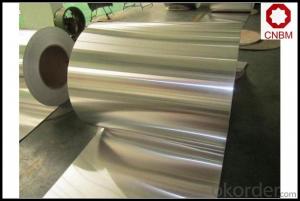High Quality Coil Coating Aluminum Coil for Ceiling - Building Material at Good Price
- Loading Port:
- Shanghai
- Payment Terms:
- TT OR LC
- Min Order Qty:
- 10 m.t.
- Supply Capability:
- 30000 m.t./month
OKorder Service Pledge
OKorder Financial Service
You Might Also Like
Packaging & Delivery
Packaging Details: | Standard export packing or following customer's demand |
Delivery Detail: | Within 10-20days or according to the order quantity |
High Quality and Factory Price Aluminum Coil
Specifications
Grade
| 1000 Series: 1050 1060 1070 1100 1200 1235 etc. 3000 Series: 3003 3004 3005 3104 3105 3A21 etc. 5000 Series: 5005 5052 5083 5086 5154 5182 5251 5754 etc. 6000 Series: 6061 6063 6082 6A02 etc. 8000 Series: 8006 8011 8079 etc. |
Thickness | 0.05~10mm |
Width | <1600mm< span=""> |
Color | Metallic, Solid, RAL or by customer requirements |
Coating paint: | PVDF(Polyvinylidene Fluoride), PE(Polyester ) |
Coating thickness | as per customer’s request |
Gloss | 10-90%(EN ISO-2813:1994) |
Total coating thick | Polyester18~27micron(EN ISO-2360:1995) PVDF27 ~35micron(EN ISO-2360:1995) |
Coating hardness | 2H |
Protective film | PVC film, Colorless transparent or White-black |
Adhesion | 5B (EN ISO-2409:1994) |
Impact resistance | No cracking and peeling (A.S.T.M D2794-1993) |
Flexibility (T-bend) | 0T- 2T |
Temper | H16, H18, H24, H26, H26 |
Certification | ISO9001:2000, CE, SGS |
Coil's standard diameter | 1100mm |
Inner Diameter | 405mm/505mm |
Coil's standard weight | 2000kgs |
Payment | L/C ,T/T |
Parameter
Product | Alloy | Temper | Thickness | Width | I.D(mm) | Application |
Aluminum Coil/Strip | 1050,1060,1070, 1100,1200,1235, 1145,3003,304, 3105,3A21, 8011 | O H12 H14 H16 H18 H22 H24 H26 | 0.2-8mm | 50-2400mm | 75,150 200,300 400,505 (as customers's request) | construction,decoration, automobile,electronic, machinery,boat construction, aeronatics&astronautics, cookware,packing etc. |
FAQ
1. How can I get some samples?
We are honored to offer you samples. New clients are expected to pay for the courier cost. The samples are free for you.
2 Do you have any certificates?
Our products passed inspection of SGS, FDA, and CE Quality is priority! Every worker keeps the QC from the very beginning to the very end, Quality control department especially responsible for quality checking in each process.
3 Can your factory print or emboss my logo on the goods?
Yes, we can print or emboss the logo on the goods or their packing box.
4 What information should I let you know if I want to get a quotation?
1) The specification of products (length x width x thickness);
2) The temper and alloy.
3) The final product you will use to be made
4 It will be better if you can show us the pictures or design sketch. Samples will be best for clarifying. If not, we will recommend relevant products with details for reference.We usually produce goods based on customers
Samples or based on customers’ picture, logo, sizes etc.
Our Services
1. Reasonable production arrangement to make delivery very fast;
2. We are able to provide leading tolerances, metallurgical assistance, quick and reliable delivery, samples for new products, etc.
3. We have the strong capability to meet your particular requirement for the products.
4.To guarantee the quality of the products we can meet most of the standards all over the world.
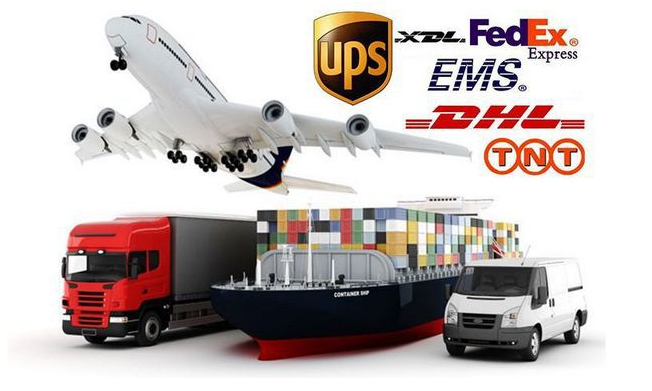
Photos
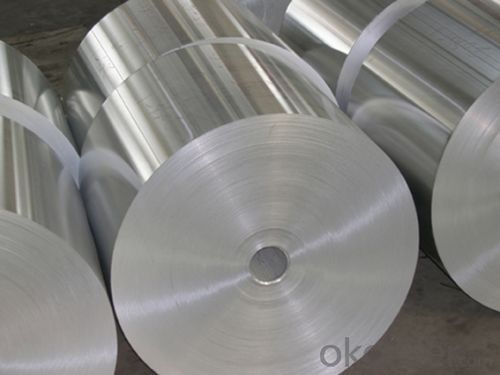
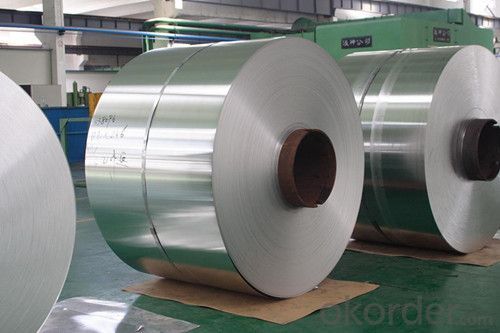
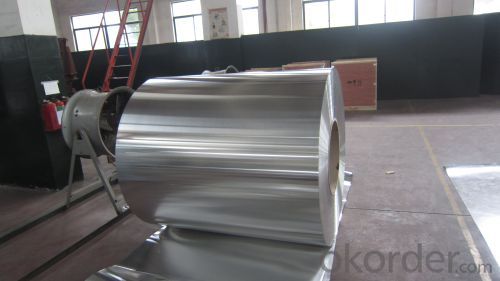
- Q: Is it safe or practical to utilize aluminum coils in kitchen settings?
- <p>Aluminum coils can be used in the kitchen, but with certain considerations. They are often used in cookware due to their excellent heat conductivity, which allows for even heating. However, there are concerns about aluminum leaching into food, especially at high temperatures or in acidic environments, which could potentially have health implications. It's recommended to use aluminum cookware with a protective coating or to opt for cookware made from other materials like stainless steel or cast iron if there are health concerns. Always check the manufacturer's guidelines for safe usage and cleaning to ensure longevity and safety.</p>
- Q: What specific tools are required for handling and working with aluminum coils?
- <p>Working with aluminum coils typically requires specialized tools to ensure safety and efficiency. These include cutting tools like metal snips or shears designed for aluminum, which are crucial for cutting the coils without damaging them. Additionally, a coil carrier or uncoiler is necessary for handling and unrolling the coils without causing injury or deformation. Protective gear such as gloves and safety glasses is also essential to prevent injuries from sharp edges or debris. For more precise work, a metal straightener or leveling machine may be needed to correct any warping in the aluminum coils.</p>
- Q: Can aluminum coils be used in telecommunications infrastructure?
- Yes, aluminum coils can be used in telecommunications infrastructure. Aluminum is commonly used in various components of telecommunications infrastructure, including cables, connectors, and antennas. It is preferred for its lightweight, durable, and corrosion-resistant properties, making it suitable for outdoor installations. Additionally, aluminum coils provide excellent conductivity, ensuring efficient transmission of signals in telecommunications systems.
- Q: Is it possible to determine the spring constant of an aluminum coil using a spring compressor?
- <p>Yes, you can use a spring compressor to measure the spring constant of an aluminum coil. The spring constant (k) can be calculated using Hooke's Law, which states that the force exerted by a spring is proportional to its displacement (F = kx). By applying a known force to the spring and measuring the resulting displacement, you can calculate the spring constant. A spring compressor can apply a controlled force, and a displacement gauge can measure the compression, allowing you to determine the spring constant accurately.</p>
- Q: What is the role of aluminum coils in HVAC systems?
- The functioning of HVAC systems relies heavily on the presence of aluminum coils, which are vital for system efficiency. Within the air conditioning unit, aluminum coils serve as a crucial component responsible for the transfer of heat between indoor and outdoor environments. When the air conditioning unit operates in cooling mode, the aluminum coils serve as evaporator coils. Their primary function is to absorb heat from the indoor air, resulting in its cooling. The warm air from the room passes over the cold aluminum coils, and the heat is then transferred to the refrigerant flowing through the coils. This process effectively cools the air while removing moisture, ultimately achieving the desired cooling effect. In heating mode, the aluminum coils take on the role of condenser coils. They receive the hot refrigerant from the compressor and proceed to transfer the heat to the surrounding air. This hot air is then circulated throughout the building, providing warmth during colder weather. Aluminum coils are preferred in HVAC systems due to their exceptional heat transfer properties and resistance to corrosion. These coils are lightweight, durable, and possess high thermal conductivity, enabling efficient heat exchange. Additionally, aluminum coils are more environmentally friendly compared to other materials like copper, as they are easier to recycle. Regular maintenance and cleaning of the aluminum coils are essential to ensure optimal performance and prevent any potential airflow restrictions caused by the accumulation of dust, dirt, or debris. Neglecting coil maintenance can result in reduced cooling or heating capacity, decreased energy efficiency, and even system breakdowns. Overall, the significance of aluminum coils in HVAC systems cannot be overstated. These coils play a vital role in facilitating the heat transfer process, enabling efficient temperature control in both cooling and heating modes, and contributing to the overall comfort and functionality of the system.
- Q: Describe the steps involved in the production of aluminum coil.
- <p>The process of making aluminum coil involves several key steps. Initially, raw materials, typically bauxite ore, are mined and then refined to produce aluminum oxide. This aluminum oxide is then reduced to aluminum metal through the Hall-H茅roult process, where it is dissolved in molten cryolite and electrolyzed to extract aluminum. Once the aluminum is produced, it is melted and then continuously cast into large slabs or billets. These slabs are then hot or cold rolled to reduce their thickness and width, forming coils. The coils are annealed to improve their mechanical properties and surface finish. Finally, the aluminum coils are cleaned, inspected, and cut to size before being packaged and shipped to customers for various applications such as construction, automotive, and packaging.</p>
- Q: How do aluminum coils contribute to lightweight construction?
- Due to its properties as a metal, aluminum plays a crucial role in lightweight construction. Its low density sets it apart from other metals like steel or copper, making it significantly lighter. When formed into coils, aluminum increases its surface area, resulting in more efficient heat transfer and distribution. The utilization of aluminum coils in various industries such as automotive, aerospace, and construction leads to a notable reduction in overall weight. This reduction offers several advantages, including enhanced fuel efficiency in vehicles, increased payload capacity in aircraft, and easier handling and installation in construction projects. Furthermore, the lightweight nature of aluminum coils enables designers and engineers to develop more innovative and energy-efficient designs. With less weight to support, thinner and lighter materials can be used for other components, resulting in additional weight savings. This not only saves costs during manufacturing and transportation but also reduces environmental impact. Moreover, aluminum coils possess excellent corrosion resistance, making them ideal for outdoor applications. Their ability to resist rust and corrosion adds to their durability and longevity, ensuring that lightweight structures made with aluminum coils can withstand harsh environmental conditions. In conclusion, aluminum coils contribute significantly to lightweight construction by providing a durable and lightweight material. This enables designers and engineers to create more efficient and sustainable structures, vehicles, and products. The use of aluminum coils not only reduces the weight of the overall construction but also offers benefits such as improved fuel efficiency, increased payload capacity, and cost savings.
- Q: This question asks for the various uses of aluminum coil within the construction industry.
- <p>Aluminum coil has several applications in construction due to its lightweight, durability, and resistance to corrosion. It is commonly used in roofing and siding materials for both residential and commercial buildings. Aluminum coil is also utilized in the manufacturing of window frames and doors due to its strength and ability to withstand harsh weather conditions. Furthermore, it is used in the production of heat exchangers and HVAC systems because of its thermal conductivity. Additionally, aluminum coil is employed in the construction of scaffolding and temporary structures due to its ease of handling and high strength-to-weight ratio. It also finds use in the fabrication of electrical conduits and cable trays because of its electrical conductivity and resistance to moisture.</p>
- Q: Are aluminum coils suitable for heat sinks?
- Indeed, aluminum coils are well-suited for heat sinks. The reason for aluminum's popularity in this regard lies in its exceptional thermal conductivity and affordability. Its remarkable thermal conductivity permits efficient heat transfer from a heat source to the heat sink's fins, which effectively dissipate the heat into the surrounding environment. Moreover, aluminum possesses the advantageous qualities of being lightweight and easily moldable into different shapes, thereby rendering it a versatile material for heat sink purposes. All in all, aluminum coils prove to be a fitting option for heat sinks due to their ability to effectively dissipate heat and their cost-effectiveness.
- Q: What are the different coil winding options available for aluminum coils?
- There are several different coil winding options available for aluminum coils. These options include: 1. Single-layer winding: This is the most basic winding option where the wire is wound in a single layer around the coil. It is suitable for applications where space is limited and efficient cooling is required. 2. Double-layer winding: In this winding option, two layers of wire are wound on top of each other. This provides better heat dissipation and allows for higher power handling capacity. 3. Concentric winding: Concentric winding involves winding the wire in a series of concentric circles, with each layer of wire having a slightly different diameter. This type of winding is used to reduce the overall size of the coil while maintaining high inductance. 4. Litz wire winding: Litz wire is a type of wire made up of multiple strands, each individually insulated. This winding option is used to minimize skin effect and reduce power loss due to high-frequency currents. Litz wire winding is commonly used in high-frequency applications. 5. Toroidal winding: Toroidal winding involves winding the wire in a circular shape, creating a toroidal coil. This type of winding offers better magnetic field containment and reduced electromagnetic interference. 6. Layered winding: Layered winding involves winding the wire in multiple layers, with each layer insulated from the previous one. This type of winding is used when a high number of turns is required in a compact space. 7. Sectional winding: Sectional winding involves dividing the coil into different sections and winding each section separately. This allows for better control over the distribution of magnetic flux and reduces losses. Each of these coil winding options has its own advantages and is suitable for different applications based on factors such as power handling capacity, size constraints, and frequency requirements.
Send your message to us
High Quality Coil Coating Aluminum Coil for Ceiling - Building Material at Good Price
- Loading Port:
- Shanghai
- Payment Terms:
- TT OR LC
- Min Order Qty:
- 10 m.t.
- Supply Capability:
- 30000 m.t./month
OKorder Service Pledge
OKorder Financial Service
Similar products
Hot products
Hot Searches
Related keywords
